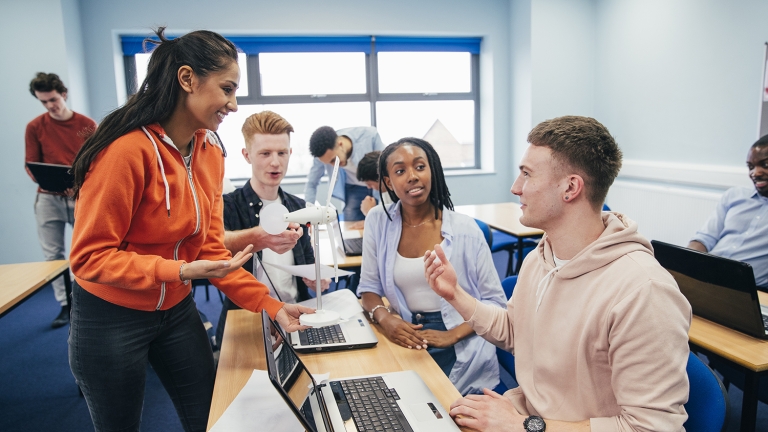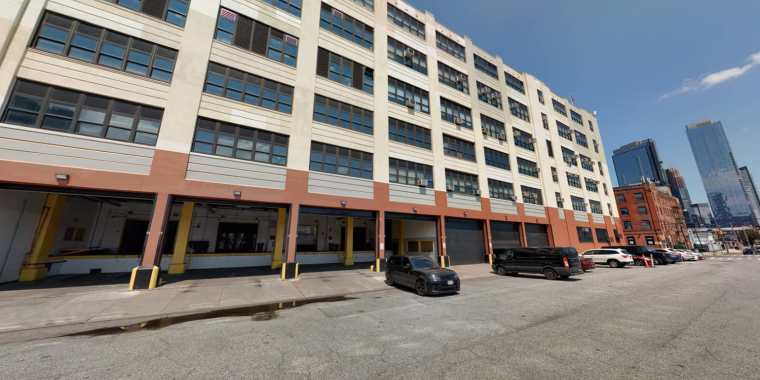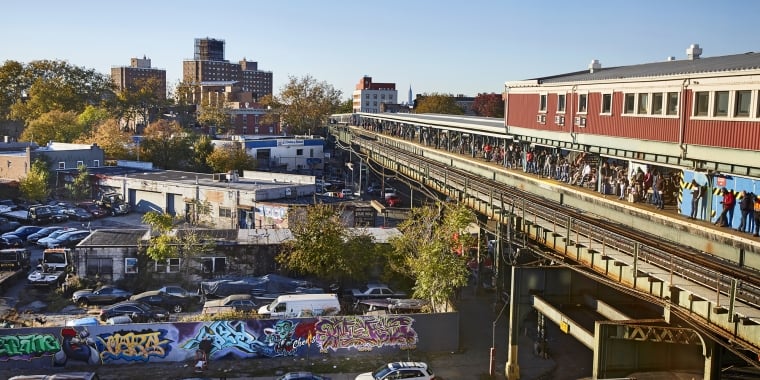CUNY and NYCEDC Announce Nearly $4M in City Funding for Green Workforce Programs at Several Public Colleges

Six Public Colleges Selected Will Utilize City Funding to Create and Shape New Green Energy Curriculum
Programs to Provide Needed Certification for New Green Jobs and Provide Students with Research Opportunities in Emerging Fields
Majority of Funding Devoted to Programs Specifically Around the Offshore Wind Industry; Building off the City’s $191 Million Commitment
NEW YORK, NY—The City University of New York (CUNY) Chancellor Félix V. Matos Rodríguez and New York City Economic Development Corporation (NYCEDC) President and CEO Andrew Kimball, today announced the six CUNY colleges that are the initial recipients of $3.98 million in City funding to help train the next generation of professionals for climate-smart careers. With over 157,000 clean energy jobs in New York, and another 6,800 expected jobs in offshore wind alone, today’s announcement continues to build a pipeline from local public colleges to these growing and essential fields. The funding will go to a variety of programs including: training students in electric vehicle repairs, creating built environment and green energy solutions courses, while also developing new Offshore Wind (OSW) industry curriculum and providing needed certification for green energy jobs.
“The climate crisis is real and we need to find ways to build our workforce to address this pressing problem in our city. This investment in CUNY helps our city prepare for climate change while also equipping our students with the updated technology and training they need to secure experience and jobs in this critical sector,” said Chancellor Matos Rodríguez.
“Creating a green jobs pipeline for New York City students is essential to capitalize on the growth of our new emerging sectors and ensure good paying jobs are going to New Yorkers,” said Andrew Kimball, NYCEDC President & CEO. "With such an enormous potential for job creation in the years to come particularly in the Offshore Wind industry, we must continue to advance our Offshore Wind Vision Plan and ensure students receive the training and education needed to jumpstart their careers in our green economy."
The six colleges receiving funding include:
Kingsborough Community College
Kingsborough Community College funding will go towards renovating its Maritime Technology T3 building with modern training equipment and expanded facilities to accommodate increased student enrollment. KBCC will also make upgrades to the CUNY 1, the only hybrid-powered catamaran training vessel in the U.S and a state-of-the-art platform for green sailing and research.
CUNY 1 will incorporate modifications that will expand its role as a training platform for a wind energy support vessel. The College is receiving funding to provide certification for relevant offshore wind occupations, specifically welding training and direct entry into the Paul Hall Center for Maritime Training affiliated with Seafarers International Union and pre-apprenticeship programs and support the development of Global Wind Organization Basic Safety Training (GWO-BST). The new curriculum was created in partnership with AIS Survivex, the GWO training division of 3t Energy Group, and includes a globally recognized industry informed credential that helps students learn basic safety procedures for the offshore wind industry. Trainings for students will include working at heights, sea survival, fire awareness and manual handling.
Baruch College
The undergraduate CUNY Climate Scholars (CSS) Program will receive funding to work directly with faculty mentors over 12 weeks in their labs on research projects related to green energy, which culminates in a research presentation event. Over the 9-month Climate Scholars experience, students will:
- Participate in twice weekly didactic sessions with climate and energy experts; and
- Meet with 2600 first year undergraduate CUNY Students and 65 STEP Academy middle and high school students to expose them to climate and renewable energy issues.
The program will also pair students with organizations working to advance renewable energy and climate resilience for a three-month internship experience. The CSS program started at Baruch will expand this year to welcome students from Brooklyn College, Bronx Community College, and Hunter College.
Bronx Community College
At Bronx Community College (BCC), City funding will provide students with hybrid and electric car repair trainings, ensuring they have the skills necessary to meet the automotive industry’s new demands and needs. BCC plans to offer an Electric Vehicle concentration in the Associate of Applied Science degree and will develop three courses, including one on autonomous vehicles.
City Tech
City Tech is planning to develop courses on the built environment and green energy solutions with this new capital. In addition, workshops and training modules will focus on geographic information systems (GIS), geospatial data analysis, remote sensing, and introducing pathways and opportunities in the offshore wind workforce.
LaGuardia Community College + Kingsborough Community College + City Tech’s Bridge to Offshore Wind Program
Building on each college’s existing capacities, Bridge to Offshore Wind will provide participants with the opportunity to explore offshore wind career pathways and the education and training requirements to enter the offshore industry, with a focus on maritime, electrical, construction and supply chain subsectors. The specialized offshore wind curricula and relevant programs at CUNY will leverage the system’s geographic reach and will prepare students seeking careers that can eventually lead to jobs within the offshore wind industry.
CUNY’s Advanced Science Research Center + Lehman College
CUNY’s Advanced Science Research Center (ASRC) at The Graduate Center will invite six students from Lehman College, Hostos Community College, Baruch College, and Medgar Evers College to work on paid summer research projects in green energy, including new materials for solar and evaporation energy harvesting and biodegradable battery technologies. Each of these projects are interdisciplinary in nature and students will acquire specific scientific skills, in addition to collaboration, teamwork and scientific communication that will benefit them in their future climate-related careers.
“I joined the CUNY Climate Scholars program because I wanted to have a more active role in the fight against climate change. This program has deepened my understanding and knowledge on climate change and sustainable energy usage, making me a better advocate for myself and everyone else,” said Zandile Koikai, a CUNY Climate Scholar and Baruch College student. “I knew that my involvement in this program would lay the foundation for my future career goals.”
"When I heard about the CUNY Climate Scholars Program, I leaped at the chance to apply and partake. As a Biology student, I am acutely aware of the repercussions climate change will have on global public health,” said Ishrat Jahan, a CUNY Climate Scholar and Hunter College student. “We must equip the next generation with the means to transition to a green economy rather than continue our reliance on fossil fuels. The CCS program provides vital education and professional experience that would ease that transition in NYC. Already, it has allowed me the opportunity to conduct hands-on research in implementing climate tracking technology to analyze climate trends and hopefully prevent them."
The City has committed $191 million to offshore wind projects — including $57 million in support of South Brooklyn Marine Terminal (SBMT) and $134 million in new investments. These initiatives are expected to remove more than 34 million tons of CO2 from the environment — the equivalent of removing nearly 500,000 cars from roadways for 15 years — as well as meet the goal of 100 percent clean electricity by 2040 and carbon neutrality by 2050. In addition, these investments will create 13,000 jobs related to offshore wind infrastructure with 40 percent of job and investment benefits directed toward minority- and women-owned business enterprises (M/WBEs) and environmental justice communities across the five boroughs.
These education workforce development programs will be crucial in preparing New York City’s workforce for the burgeoning offshore wind industry. In March of 2022, Mayor Adams announced an agreement with Equinor and Sustainable Marine Terminal, LP, that will transform SBMT into one of the largest OSW port facilities in the nation and be essential to the state’s OSW supply chain. Currently, five OSW projects are in active development, which will power more than 2.4 million New York’s homes and bring a combined economic impact of $12.1 billion to New York state.
New York City’s goal is to have 70 percent of its energy consumption come from renewable sources by 2030.
About NYCEDC
New York City Economic Development Corporation is a mission-driven, nonprofit organization that creates shared prosperity across New York City by strengthening neighborhoods and creating good jobs. We work with and for communities to bring emerging industries to New York City; develop spaces and facilities for businesses; empower New Yorkers through training and skill-building; and invest in sustainable and innovative projects that make the city a great place to live and work. To learn more about what we do, visit us on Facebook, Twitter, LinkedIn, and Instagram.


